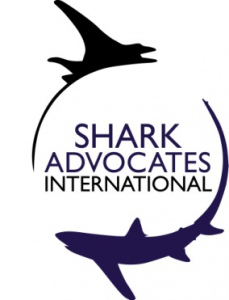
President, Shark Advocates International
 Sonja Fordham founded Shark Advocates International as a project of The Ocean Foundation in 2010 based on her two decades of shark conservation experience at Ocean Conservancy. She is Deputy Chair of the IUCN Shark Specialist Group and Conservation Committee Chair for the American Elasmobranch Society, has co-authored numerous publications on shark fisheries management, and serves on most of the U.S. federal and state government advisory panels relevant to sharks and rays. Her awards include the U.S. Department of Commerce Environmental Hero Award, the Peter Benchley Shark Conservation Award, and the IUCN Harry Messel Award for Conservation Leadership.
Sonja Fordham founded Shark Advocates International as a project of The Ocean Foundation in 2010 based on her two decades of shark conservation experience at Ocean Conservancy. She is Deputy Chair of the IUCN Shark Specialist Group and Conservation Committee Chair for the American Elasmobranch Society, has co-authored numerous publications on shark fisheries management, and serves on most of the U.S. federal and state government advisory panels relevant to sharks and rays. Her awards include the U.S. Department of Commerce Environmental Hero Award, the Peter Benchley Shark Conservation Award, and the IUCN Harry Messel Award for Conservation Leadership.
The last twelve months added up to another exciting year in shark and ray conservation policy. We certainly saw and should herald a lot of great progress in 2012. I think it’s also important to acknowledge what went wrong so we know where we stand and how best to move forward. I’ve taken a look back and compiled a top ten list of what I see as the best and worst events in shark fisheries management for 2012, based on my work at Shark Advocates International. I’m starting with the low points, but keep reading! It ends on a high note.
Top Five Worst Events(in chronological order)
1. Delay in U.S. smoothhound management
The U.S. National Marine Fisheries Service gave nearly two years notice on their plan to limit landings of Atlantic smoothhound sharks, beginning in 2012. Those initial caps did not take effect in April as planned, however, due largely to some confusing text on smoothhounds in the Shark Conservation Act that has yet to be interpreted. For the time being, the U.S. – despite being a shark conservation leader globally – has a targeted shark fishery that operates without limits on catch. This is the only domestic government action that made my global list; I included it because of the ongoing loss of potential to inspire properly managed smoothhound fisheries around the world.
2. Premature eco-label for U.S. spiny dogfish
In August 2012, the Marine Stewardship Council (MSC) certified as “sustainable” six Northeast U.S. longline, gillnet, and trawl fisheries for spiny dogfish. It’s terrific that hard-fought limits have allowed some recovery in the Northwest Atlantic spiny dogfish population. Still, a number of factors — inherent biological vulnerability, the targeting of pregnant females, predicted declines, damaged population structure, bycatch of protected species, and a disjointed, risk-prone management system – simply don’t add up to an eco-friendly seafood choice. This decision also sets a pretty low bar for MSC certification of other shark fisheries elsewhere.
3. Chaos in the European Parliament over finning
The European Parliament Fisheries Committee’s debates on strengthening of the EU ban on finning produced considerable angst for conservationists in 2012, but most agree the low point came during a critical voting session in September. With shark fishing interests from Spain and Portugal fiercely opposing proposed improvements, the day was full of confusing and tense moments. It was especially memorable for the smack on the hand the Portuguese rapporteur gave her German colleague as she realized he was voting – against her instructions — to close loopholes (by ending removal of shark fins at sea). The session concluded in a contradictory report, which — to our great relief — was later corrected in the Parliament’s November plenary session (see Best Events).
4. Defeat at ICCAT
An unusually high number of shark conservation proposals failed at the November 2012 meeting of the International Commission for the Conservation of Atlantic Tunas (ICCAT) in Morocco. Canada blocked an EU proposal to protect threatened porbeagles, while Japan, China, and Korea defeated the EU’s attempt to establish science-based limits on shortfin mako sharks as well as a proposal by the U.S., Belize, and Brazil to strengthen the ICCAT finning ban. Conservationists are urging the U.S. and EU to continue to lead the fight for these and other key international measures.
5. Whale shark safeguard undermined by exemption
Australia has long been pressing to ban deliberate setting of purse seines on whale sharks(which can act as fish aggregators) as part of international Pacific tuna management. In March 2012, the Western and Central Pacific Fisheries Commission (WCPFC), despite reluctance by Japan, committed to tackle the issue at their December 2012 meeting in the Philippines. With most negotiation taking place behind the scenes, it’s hard to be sure who argued for what, but the final measure allows exemptions for national waters of member countries north of 30° latitude (essentially Japan). While Australia should be congratulated for the progress (a 2012 highlight), the loophole carved by others is significant and regrettable.
Top Five Best Events(in chronological order):
1. International prohibition on Pacific oceanic whitetip sharks
The 2011 annual meeting of the WCPFC was postponed to March 2012 in Guam. There, thanks to U.S. leadership, fishing nations agreed to prohibit the retention, transshipment, storage, and landing of oceanic whitetip sharks. This sound decision was based on groundbreaking analyses conducted under the WCPFC Shark Research Plan through which scientists documented steep population declines and estimated that a ‘no retention’ policy could reduce oceanic whitetip mortality in fishing operations by up to 76%. The measure complements a similar 2011 decision for the Eastern Pacific. As with all international measures, the effectiveness of these bans depends on individual member countries implementing consistent regulations.
2. Sweeping Mediterranean protections
In May, in a sweeping yet remarkably under-reported decision, the General Fisheries Commission for the Mediterranean (GFCM) prohibited the retention, transshipment, landing, storage, and sale of sharks and rays in Annex II SPA/BD Protocol of the Barcelona Convention. At the time, Barcelona Convention member governments were in the process of adding 10 elasmobranch species — including shortfin makos, hammerheads, and guitarfish — to Annex II. That list already included 14 threatened species, such as sawfishes and angel sharks, bringing the total number of species slated for protection to 24. While this decision represents unprecedented shark action by a Regional Fishery Management Organization, conservationists are again pressing for implementation.
3. A global conservation plan
In September, dozens of nations, convened through the Convention on Migratory Species (CMS) in Bonn, adopted a Conservation Plan to complement the 2010 CMS Memorandum of Understanding (MoU) on Migratory Sharks. The MoU is the first intergovernmental treaty dedicated specifically to global shark conservation; to date, seven species are covered and 25 governments have become signatories. The plan details actions to promote cooperative research, science-based fishing limits, effective finning bans, and habitat protection. The CMS Shark MoU and Conservation Plan form a sound basis for cooperative conservation of a number of threatened, migratory sharks, but success depends on additional signatories and concrete follow-up actions.
4. Unprecedented push for CITES listings
In early October, a record number of shark and ray species – including hammerheads, manta rays, porbeagles, and oceanic whitetip sharks — were proposed for listing under the Convention on International Trade in Endangered Species (CITES) by various countries around the world. These proposals, if adopted by the required 2/3 majority of CITES Parties in March 2013, can complement fisheries management and help ensure that international trade in these vulnerable species is legal and sustainable.
5. European Parliament embraces stronger finning ban
In November 2012, after six years of debate, the European Parliament voted to close loopholes in the EU finning ban by a margin of 566-47. The landslide vote represented endorsement of a European Commission proposal to end removal of shark fins at sea (and thereby require that all sharks landed still have their fins naturally attached). Conservationists are now calling on the European Commission and EU fisheries ministers to promptly finalize the regulation. Because of the EU’s strong influence at international fisheries bodies, an EU “fins-attached” policy holds great promise for combating finning on a global scale.
Congratulation for all awards. The conservation of shark activities need to be spread every parts of world and in this purpose political commitment to be sought. This is good amen to achieve so far.
Regards
Majeed Naich